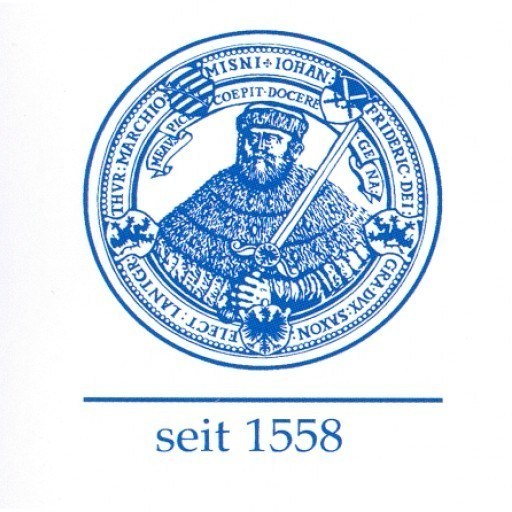Photos of university / #uni_fau
Integrated Life Sciences at Friedrich-Alexander University Erlangen-Nuremberg offers a comprehensive interdisciplinary education designed to prepare students for the dynamic and evolving fields of biology and life sciences. This program integrates core principles from various disciplines such as molecular biology, genetics, biochemistry, physiology, and biotechnology, providing students with a broad and in-depth understanding of living systems. Students will acquire practical skills through laboratory work, research projects, and internships, enabling them to apply theoretical knowledge to real-world problems. The curriculum emphasizes the development of analytical thinking, experimental skills, and the ability to work across traditional scientific boundaries. Graduates of the program are equipped to pursue careers in research, healthcare, biotech industries, environmental protection, and academia. The university's state-of-the-art facilities and close collaborations with research institutes foster an innovative learning environment. The program also offers opportunities for international exchange and specializations, allowing students to tailor their education to their interests and career aspirations. With a focus on both fundamental science and applied research, the Integrated Life Sciences program aims to cultivate the next generation of scientists who will contribute to advancements in medicine, biotechnology, and environmental sustainability. The degree prepares students not only for academic careers but also for roles in industry, policy, and education, promoting a holistic understanding of biological systems and their impact on society.
Educational organisation
The first year of the degree programme is dedicated to complementary courses in two out of the three module groups: Mathematical Modelling and Systems Biology (MG1) - Bioimaging and Biophysics (MG2) - Biological Structures and Processes (MG3).Each of these module groups consists of mandatory courses - Systems Biology and Biomathematics (MG1), Bioimaging and Biophysics (MG2), Interactions of Biological Macromolecules (MG3) - and elective courses chosen from a number of practical or theoretical modules, e.g. high-resolution microscopy, structure elucidation of biomolecules, biophysics or biomembranes.
The second year of the Master's programme in ILS is dedicated to further specialisation and the Master's thesis.
Study abroad unit(s)
Written and oral exams in accordance with the guidelines, Master's thesisThe programme consists of 120 ECTS.
Language requirements
The required English level is "vantage or upper intermediate" level (B2) according to the Common European Framework of Reference for Languages or an equivalent score in an internationally recognised test, e.g. IELTS 5.5, TOEFL PBT 552.Academic requirements
Applicants are required to have a Bachelor's degree or an equivalent qualification. We will check your qualification for our degree course in a selection process. You should provide proof of specialised and methodological knowledge of mathematics, molecular biology or physics.Your suitability will be assessed, based on the content of your present (or prior) study programme. Your study results are of major importance, however, in case there is any doubt concerning your qualification, you will be invited to a personal interview.
Enrolment fees
The contribution to student services currently amounts to 42 EUR per semester. An additional charge of 65 EUR per semester covers the mandatory basic "semester ticket", a transit pass that provides students with unlimited access to public transport in the metropolitan region of Nuremberg from 7pm to 6am on weekdays and at all times at weekends. (For an additional optional charge, the validity of the pass can be extended to 24 hours a day, seven days a week.)Costs of living
The cost of living can only be approximated very generally, as the needs and living conditions of every student are different.Rent: 250-600 EUR per month
Health insurance, doctor, medicine: approximately 70 EUR per month
Food: approximately 165 EUR per month
Study materials: approximately 30 EUR per month (depending on the subject)
Transport: minimum 65 EUR per semester
Student services: 42 EUR per semester
For more information, see: http://www.fau.eu/study/prospective-students/financing-your-studies/costs-of-studying
General information on the average cost of living in Germany is available online: http://www.internationale-studierende.de/en/prepare_your_studies/financing/costs_of_living
Funding opportunities within the university
The Central Office for International Affairs offers scholarships from Bavarian state funding to allow highly qualified international students in Master's, "Diplom", and State Exam degree courses to complete their degrees.http://www.fau.eu/international/international-applicants/bachelors-masters-state-examinations/during-your-studies/scholarships-for-international-students-about-to-graduate/
Arrival support
Our faculty offers a buddy programme starting with the winter semester 2016/17. International students will be supported by their German classmates.Services and support for international students
The Student Advice and Career Service (IBZ) will provide you with detailed information on all important topics relating to your studies (study courses, subject combinations, application requirements, support with organising your study programme and complying with all assessment/examination requirements) and on settling in at the beginning of the semester (coping with particular difficulties, changing subjects or suspending studies). For more information, see http://www.fau.eu/study/prospective-students/student-advice.The Career Service of FAU will provide you with information on career opportunities and the specifics of an application procedure in Germany. For information, see: http://www.fau.eu/study/current-students/career-service.
The Student Service Centres (SSC) and student advisers in the faculties will provide you with further advice on your particular course of study. Programme coordinators organise subject-related orientation events and guide you through the entire study period.
The Central Office for International Affairs (RIA) will provide you with detailed information on accommodation, visa issues, and scholarship possibilities. In cooperation with the IBZ, it also organises information events and general orientation courses for first-semester-students.
See: http://www.fau.eu/international/international-applicants.
The Alumni network provides students with many topics and events for professional advancement. See: http://www.fau.eu/alumni.
Accommodation
Erlangen and Nuremberg are attractive cities with a historic flair and modern infrastructure. Therefore, the housing market is quite tight. FAU will do its best to assist new students in finding accommodation.Student halls in Erlangen and Nuremberg can only provide accommodation for a small number of students. Another option is the private housing market. If you extend your search to neighbouring towns, such as Fürth and Forchheim, your choice of accommodation is much larger and rents are lower, while the well-developed local public transport system ensures that you're never far away from the university. In addition, there is the option to sublet a room, or you can share a flat with other students. This option not only saves you money but also helps you settle in quickly and make friends in your new home. You can find information to help with your housing search on specialised websites and the university's notice boards.
Detailed information on finding accommodation is available at http://www.fau.eu/international/international-applicants/important-information.
If you need further assistance, you can also turn to the Accommodation Service of the Central Office for International Affairs (RIA). E-mail: accommodation@fau.de.







